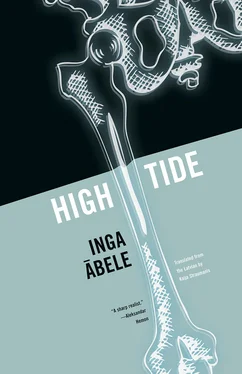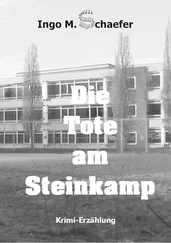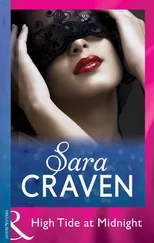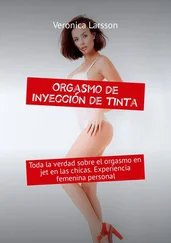Be alert.
A few years go by, and then one day Andrejs’s mother calls her up:
“Dear, if you hold any part of life to be sacred — go visit Andrejs in prison.”
InitiallyIeva, Aksels, and Monta stay with Ieva’s parents in their two-bedroom apartment in a Khrushchev-era building in the outskirts of Riga. Ieva’s brother Pāvils is studying in America and his room is empty. “It’s a nice room, on the sunny side!” Ieva says in earnest joy as she sits on the floor among the clutter, watching the sun reflect on the rust-colored roof of the building across from them. The room is too small to fit three beds. Monta sleeps between Aksels and Ieva. She often shifts to an angle in her sleep and Ieva and Aksels have to fight to keep from being pushed out of bed.
During the day, Aksels and Ieva look for jobs. Ieva’s mother Lūcija babysits Monta because Monta is still too young to send to kindergarten.
Ieva’s father Pauls still works in an office; despite the changing times, every morning for the past thirty years he stands at the mirror tying his tie, then takes his briefcase and heads to work. He was never in the Young Communist League and has never been a member of the Communist Party — something that’s considered a huge plus in these times. Possibly because the members of the Communist Party who were quick to switch sides are now Pauls’s bosses. A hard-working person will be hard-working no matter where he is. Pauls and Lūcija have never taken sides, unless you count the time Pauls burned his Soviet passport at the Freedom Monument during the Awakening Manifesto. After that Ieva and her father went to vote in the first election of the newly independent Latvia. The officials didn’t let Pauls vote, he didn’t have a passport. I burned it at the Freedom Monument! he had shouted, but they still didn’t let him vote.
“An official is always right,” he later joked about his bad luck.
I’ll place a dream about my Fatherland under my pillow,
one day I’ll meet with it again and be happy,
and sleep as soundly as a baby in its mother’s arms—
even in the suffering of death.
This poem by Jaunsudrabiņš, “For the Deported,” is always written on the first page of Pauls’s day planner. A free Latvia has always been his dream. He was disillusioned rather intensely at a young age — the deportation of his loved ones and the suffering of legionnaires.
Like every child who grew up during the war, the most important thing to Pauls is safety. He doesn’t seek out confrontation, doesn’t alter decisions, is careful with his finances, and always has a little pocket money for Ieva.
“But in moderation! There are sprinters and there are marathoners,” he’d say. “Speed is the death of a marathoner.”
Pauls is a marathoner, but very upbeat. Ieva thinks he could have been a fantastic actor had he wanted to. But even actors have to cross the line now and again, and that was something Pauls could only do in his dreams.
Even the theater pales in comparison to the streets. People don’t go to the theater — what’s happening in the streets is more interesting. The founding and collapse of banks, political parties, governments. Office workers are plucked like reeds by the raging storms of political powers. Many nights Pauls comes home from work completely withdrawn and sits in the small kitchen emptying a half-pint bottle of brandy.
“So I don’t have a heart attack!” he explains. “Today I had to explain again to the new minister why the last one made such a mess.”
Aksels lucks out and gets a carpentry job at the Academy of Music. It’s easy enough. Ieva sometimes goes to visit him in the academy’s basement — to make love, since they can’t at home. They put a blanket down on the floor. The dark vaults are warm and smell of wood glue, and dusk is filled with the sounds of the academy students’ nightly practices.
Ieva isn’t as lucky in finding a job. She diligently looks through the want ads in every possible newspaper. For the most part people are looking for secretaries — young women with a high school education, good Latvian and Russian language skills, and computer skills. English language skills will be considered an advantage. Ieva’s young — she has the necessary education and even understands some English. But she has never in her life seen a computer.
One night Pauls says:
“No problem! Come see me at work tomorrow!”
The next day Ieva trudges up the huge staircase of the Ministry of Finance and watches the young women strut confidently through the plush-carpeted hallways. That’s what a secretary has to look like in the capital — long blonde hair, a thin gold necklace, and an immaculate suit.
Ieva’s father sits her down at his desk. Hm, Ieva thinks, so that’s why he likes his job — the centuries-old oak desk asks no questions and embraces you in its sanctuary, which smells lightly of warm paper and sealing wax.
“Look!” her father says. “This is called a mouse. And that’s the monitor. Did you really not have a computer class in school?”
There were, they did have classes like that, where the teacher sat with his droopy mustache hanging over his desk and made them fill notebooks with writing on the basics of programming, showed them photographs and once took them on a special trip to the teacher’s lounge, where the school’s only computer sat under a cover in a locked cabinet — a real monolith! At least that’s what her classmates had told her; Ieva had been home sick that day.
Now she puts her hand on the mouse and moves it across the desktop. And the movement of her hand is reflected on the monitor: a white arrow moves around the screen. It’s complicated, but at the same time so simple. Something in Ieva’s mind is good at connecting her hand with the screen. Her father teaches her how to boot up and shut down the computer, how to open a new Word document, and Ieva heads home in a good mood. All that’s left to get is a suit, and she’ll be a secretary!
But it’s not that easy.
The first job Ieva gets is in some automobile club owned by twin Armenian brothers. Ieva’s diligent, writes press releases, and handles commercials for the radio and television, issues membership cards. Until one night when she stays to practice with the computer and she notices some flat-out lies. It’s advertised that the automobile club has a couple thousand members, but she can see on the computer — there aren’t more than a couple hundred! The following day she tells Olga, the office manager, a prissy Russian woman with long, buffed red fingernails. It’s just some kind of mistake, Olga says. The next day the Armenians fire Ieva.
Now a bit smarter, Ieva tries out a position at a construction firm. The director, a small and chubby old man, never misses an opportunity to pinch her butt. For a while Ieva pretends not to notice, but one morning when the director asks to recite some poems he’s written for her, she loses it and starts laughing hysterically.
The repercussion comes soon after. The office hosts an associates’ evening — Ieva fills bowls with fruit, lights candles, gets a fire going in the fireplace — if a secretary wants to get her pay on time, she has to be capable of more than working with a computer or speaking English! The director calls Ieva into the room with everyone else and offers her a glass of cognac.
“But you know I don’t drink,” Ieva says.
The next second the director throws the cognac into her face.
Ieva even tries placing an ad— Looking for secretarial work. The next day the phone at the Eglīte apartment rings non-stop with calls from what are basically pimps. A gruff voice breathes into the receiver:
Читать дальше












